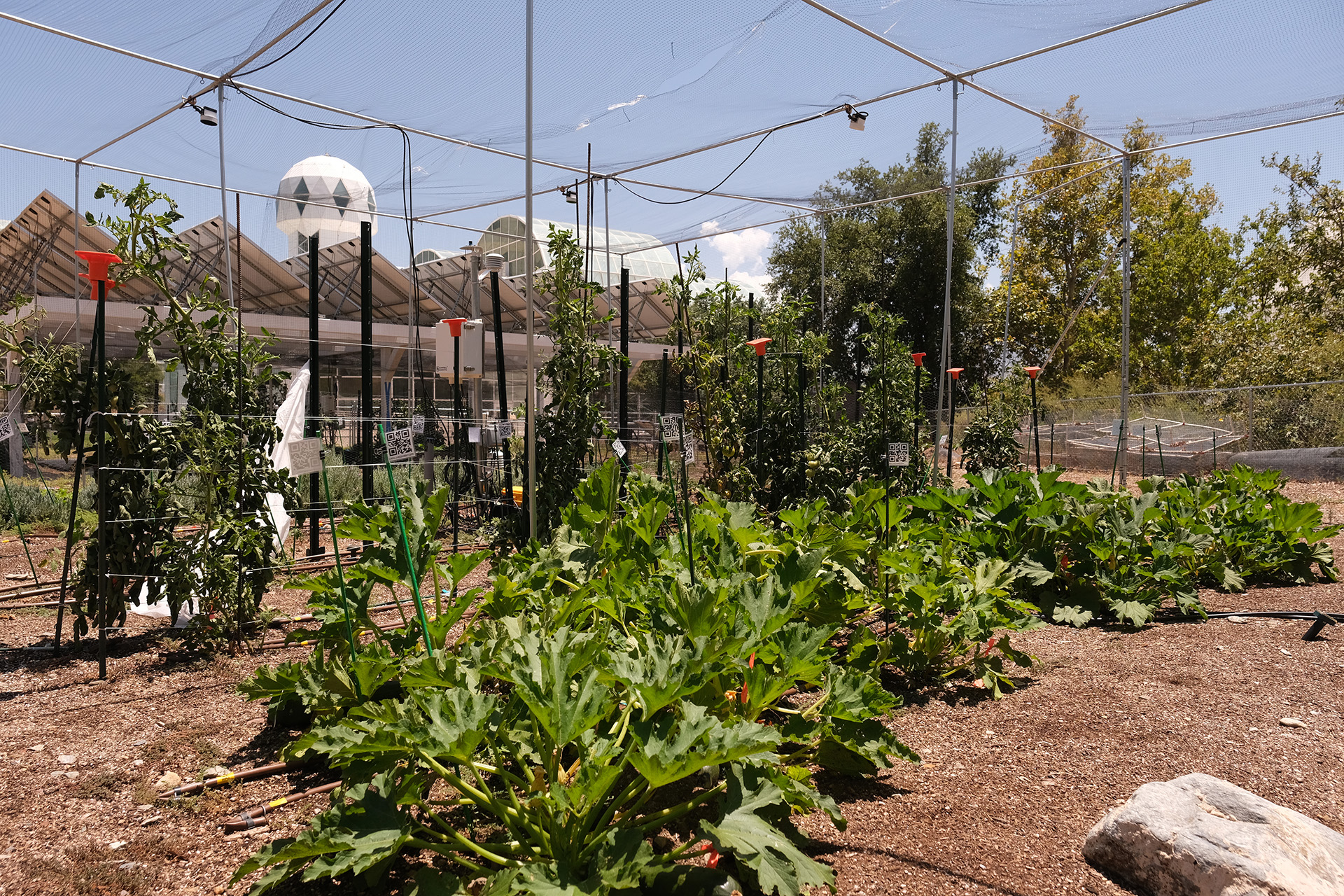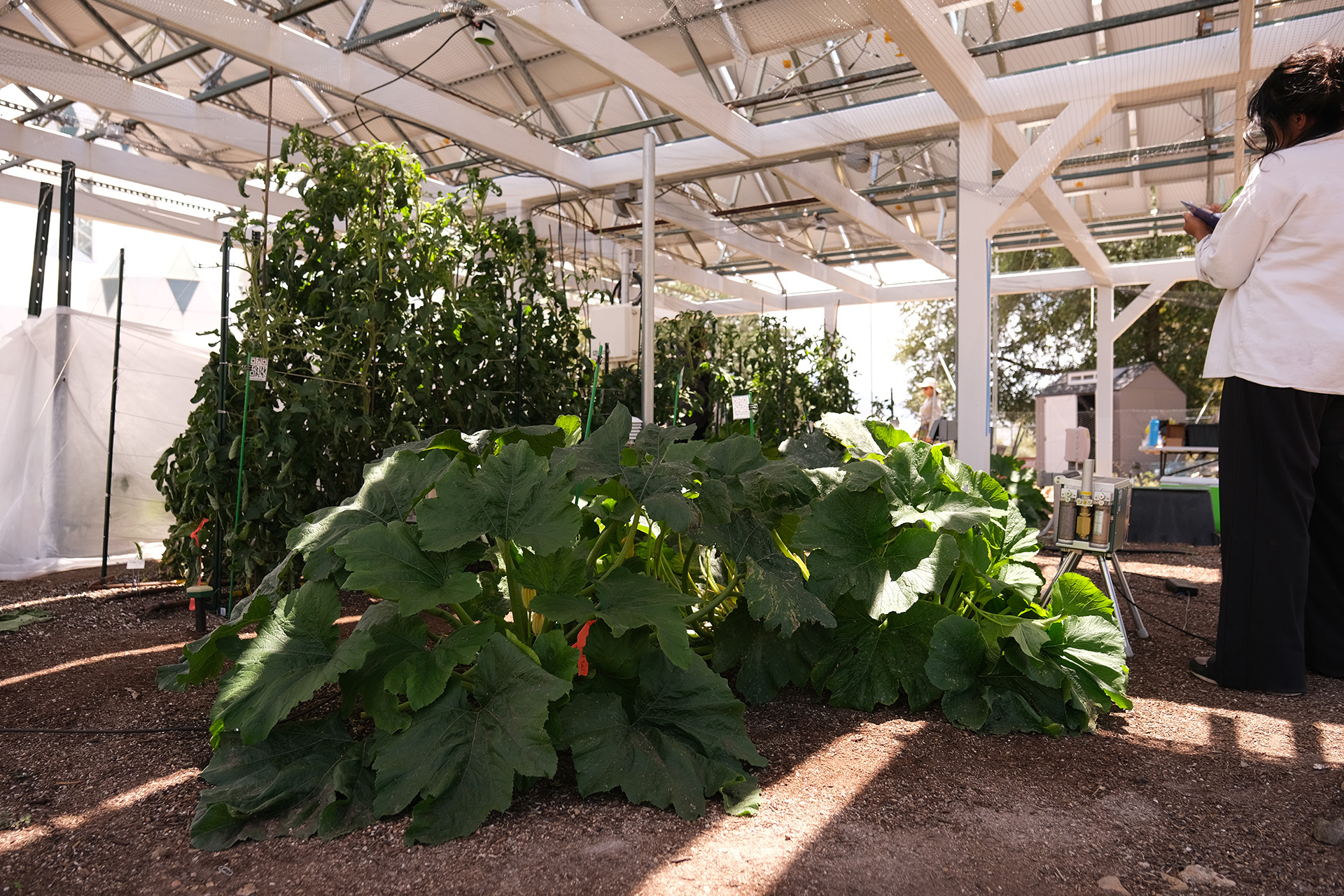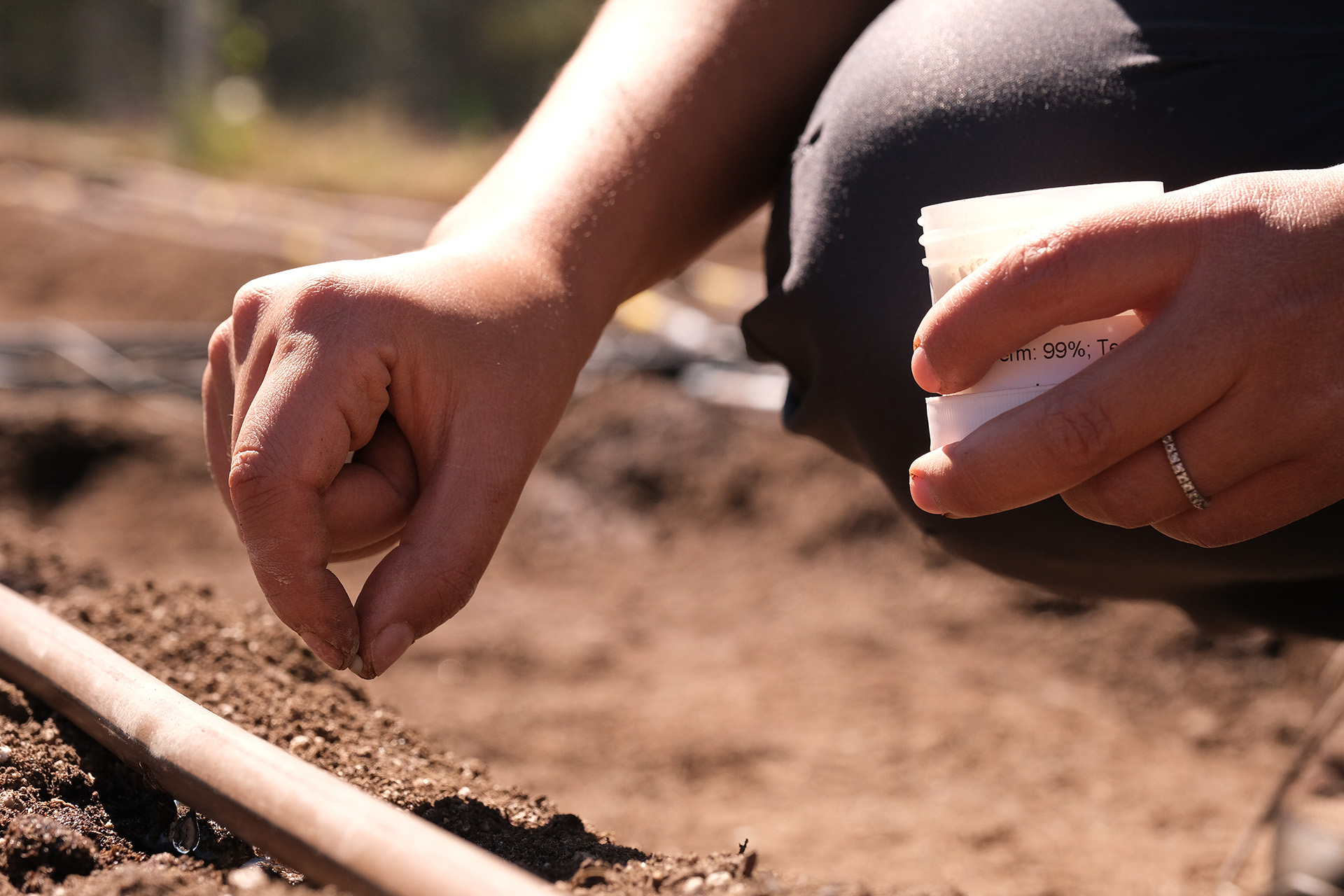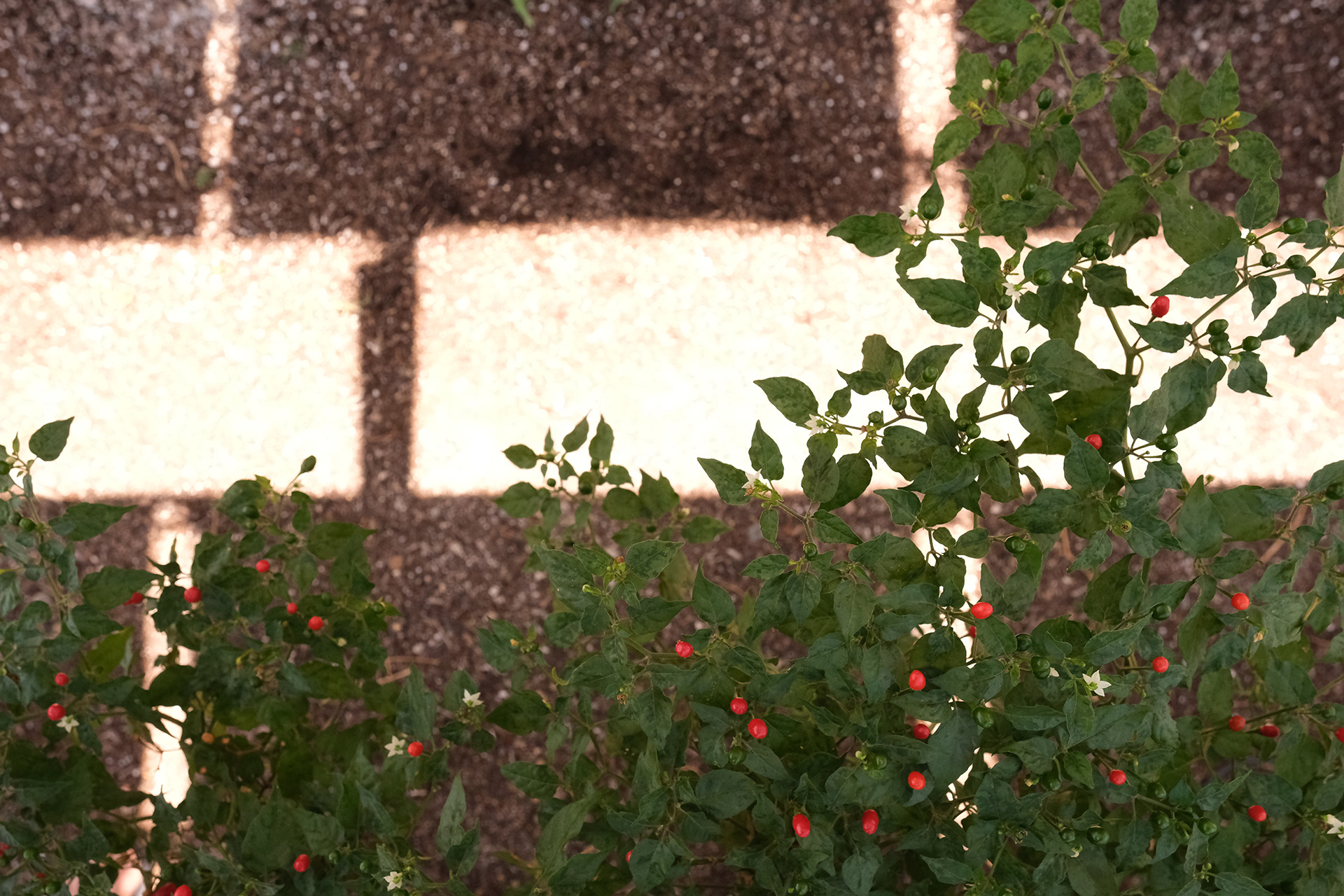Biosphere 2
Agrivoltaics research at Biosphere 2 began in 2015 with the installation of a 21.6-kW solar PV array shading a 9x18-meter garden. The research team, led by Greg Barron-Gafford, is investigating the potential for agrivoltaics to improve crop yields, reduce water use, and increase renewable energy production.
The team has found that agrivoltaics can have a number of benefits for agriculture. The shade from the solar panels reduces evaporation, which can save water. The panels also provide a microclimate that is cooler and more humid than the surrounding area, which can help plants grow. In addition, the panels can provide a source of shade for livestock, which can help them stay cool in hot weather.

The team has also found that agrivoltaics can have a number of benefits for renewable energy production. The panels can help to cool the solar cells, which can increase their efficiency. The panels can also help to reduce the amount of land that is needed for solar farms, which can be a valuable resource in areas with limited land.

The research at Biosphere 2 is still ongoing, but the team has already made significant progress in understanding the potential benefits of agrivoltaics. The team is working to develop best practices for agrivoltaic systems and to promote the use of this technology to help address the challenges of climate change and food security.

In addition to the research at Biosphere 2, there is a growing body of research on agrivoltaics around the world. A recent study by the National Renewable Energy Laboratory (NREL) found that agrivoltaics could increase crop yields by up to 25% and reduce water use by up to 50%. The study also found that agrivoltaics could increase the amount of renewable energy produced by solar farms by up to 10%.

The potential benefits of agrivoltaics are significant, and the technology is still in its early stages of development. As more research is conducted and the technology is refined, agrivoltaics could play a major role in addressing the challenges of climate change and food security.